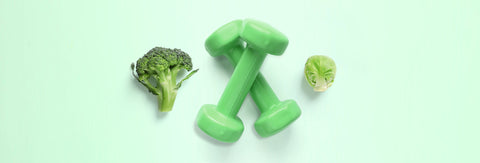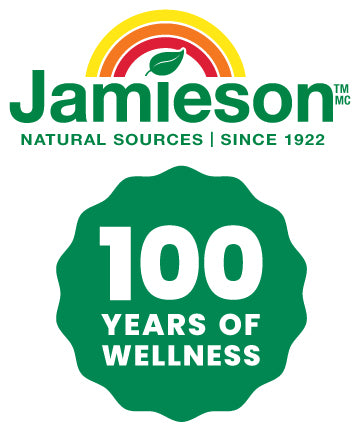On your fitness journey knowledge is power, and we could all use a little guidance. Whether you've got a routine in place or are still in the “contemplation” stage, we spoke with a fitness expert to get some answers on how to optimize your regimen. Here are some answers to your fitness questions you'll never have to Google again.
Is stretching really that important before or after a workout?
Yes, before workouts I recommend dynamic stretching. This is active stretching with no longer than 1 second hold. While pre-workout stretching helps warm up the muscles you are targeting, static stretching is not recommended since that can elongate the muscle which can weaken it prematurely before weight training.
If your muscles are sore post-workout, I recommend giving the foam roller a try.
Can lifting weight affect my joints?
When done improperly, weight lifting can have a negative affect on your joints. When done correctly, however, weight training can actually help those with joint soreness since it has been known to build bone density in the body. That’s why it’s important to maintain proper form. If you aren’t sure whether you’re maintaining proper form, you can always speak to a fitness professional.
Can I lift weight without worrying about getting too bulky?
Yes! This is a common myth with weight training. Bulking typically comes as a result of eating a caloric surplus. Weight training, however, promotes muscle growth, which in turn burns fat more efficiently.
How often should I increase my weight?
From weight training? I would recommend progressive overload (increase weight) over time. I would suggest weekly adjustments, which is easy to keep an eye on by tracking workouts and weight milestones in a journal. The body will adapt to the weight quickly, so making sure the rep ranges/weight adjustments are done weekly/biweekly is the best way to continue progress.
What happens if I don’t switch up my workout routine?
The body will adapt. In order to promote muscle growth, you need to put the body under stress. Weight lifting should be challenging. If it’s too easy, then your body will not need to recruit any fight or flight response to increase calorie consumption which in turn builds more muscle.
Are squats worth all the hype?
Squats are a full body movement which recruits all areas of the body to work during the movement. It also expends more calories. I would put squats and deadlifts among the most effective for increasing strength/muscle growth.
What’s the difference between HITT and resistance training?
It’s important to ensure that you consider both types of training to maximize your fitness goals. HIIT (or high intensity interval training) requires a high amount of effort. For example, on a stationary bike or treadmill you will rest for 1 minute followed by 20-30 seconds of full power output (high intensity) which will then be followed by 1-minute rest, then repeated numerous times. I would deem resistance training as weight training, so when it comes to increasing muscle mass and activity levels overall, both have their place.
Are there any workouts that are overrated?
My best advice is to stick to the basic exercises that work! Squats, deadlifts, bench press are crucial for overall development. Doing advanced exercises too soon in your fitness journey can also lead to injury.
Does form really matter?
100%. Form is crucial to targeting specific muscle groups. Strong form is essential for proper muscle growth. As your body tires it tries to overcompensate by recruiting other muscle groups. Since the focus moves away from the specific muscle group you were looking to work on, this defeats the purpose of targeted training. An example of this would be if you are doing arm curls and starting swaying, using your back muscles instead of focusing on the bicep head.
Is there anything I should to do before or after a workout to maximize my results?
- Proper pre and post-workout nutrition. Before and after a workout, nutrition is critical in obtaining and improving results. It will increase energy and endurance throughout and encourage recovery afterward. The key here is to choose foods that will go easy on your digestive system. Pre-workout nutrition should include foods high in carbohydrates that will give you energy, such as a fruit smoothie. Post-workout, aim for foods high in protein and glycogen to help repair muscle and energy stores, like a protein shake or chicken with veggies.
- Adequate water intake . As you aim for your 8-10 glasses per day, it’s important to make sure you drink around 8 oz (1 glass) of water every 20 minutes during your workout to avoid getting dehydrated.
- Stretching muscles before (dynamic) and after (static) workouts.
- Supplementation before and after workouts to maximize performance and recovery . Around my gym, we love Precision products. A pre-workout like Precision SNIPER or PSYCHO are great if you need an extra jolt. They’re so good for stamina, focus and blood flow, and while they aren’t essential, they’re perfect if you need an extra kick.
- A great “during” product would be Precision AMINO-PLX/Iron Vegan Amino Octane or Progressive Sport DURING, as these will supply your body with amino acids to increase recovery, but also minimize muscle breakdown while you’re working out. BCAAs, or branched chain amino acids, work very effectively in a fasted state as well as for all those intermittent fasting people; BCAAs are great while working out.
- Another great supplement is l-carnitine (which you can find in Precision Carnitine-ice). This ingredient will help mobilize your fat storage for energy and can be taken before the gym with your before-workout meal. It has also been known for reducing muscle damage post workout, so it can be taken after exercise as well.




